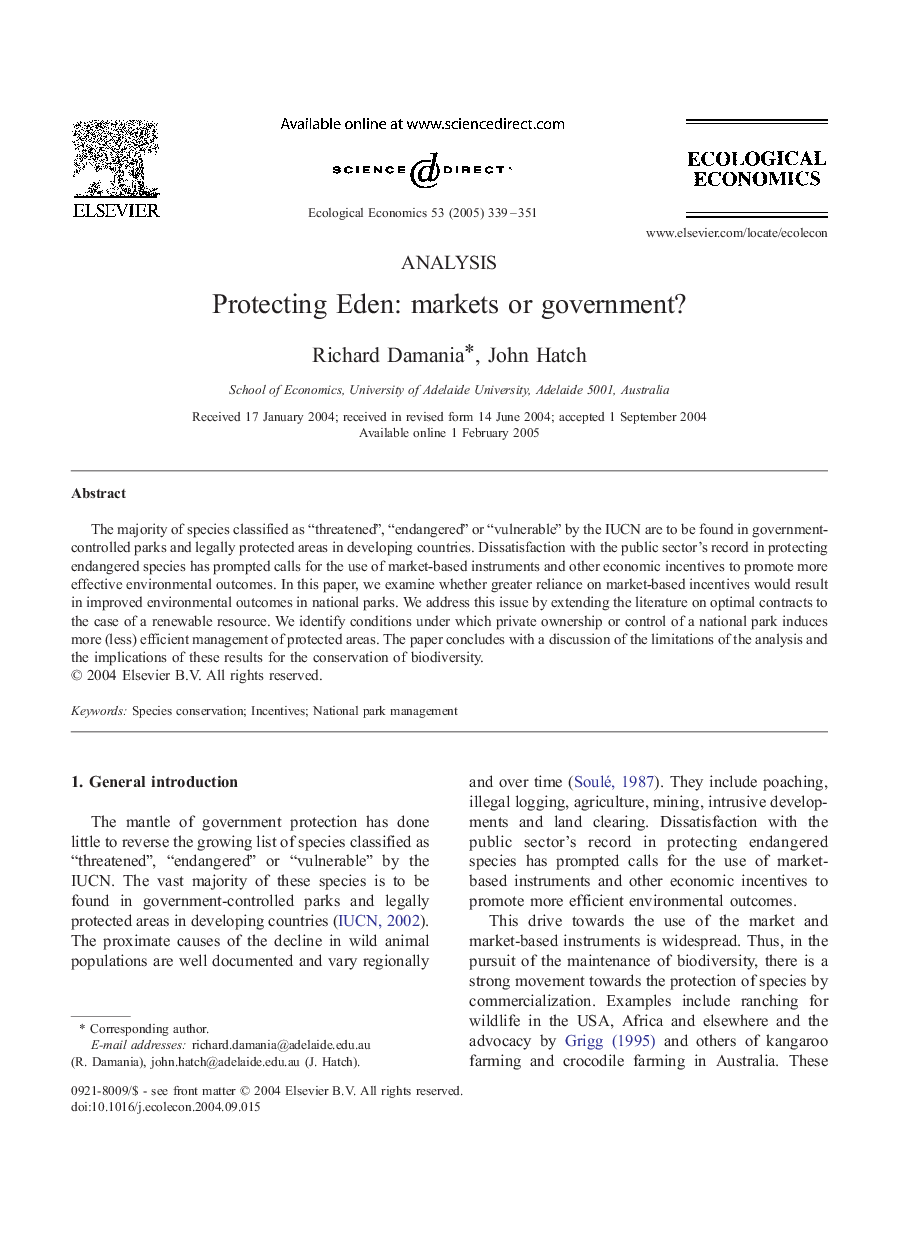| Article ID | Journal | Published Year | Pages | File Type |
|---|---|---|---|---|
| 9547735 | Ecological Economics | 2005 | 13 Pages |
Abstract
The majority of species classified as “threatened”, “endangered” or “vulnerable” by the IUCN are to be found in government-controlled parks and legally protected areas in developing countries. Dissatisfaction with the public sector's record in protecting endangered species has prompted calls for the use of market-based instruments and other economic incentives to promote more effective environmental outcomes. In this paper, we examine whether greater reliance on market-based incentives would result in improved environmental outcomes in national parks. We address this issue by extending the literature on optimal contracts to the case of a renewable resource. We identify conditions under which private ownership or control of a national park induces more (less) efficient management of protected areas. The paper concludes with a discussion of the limitations of the analysis and the implications of these results for the conservation of biodiversity.
Keywords
Related Topics
Life Sciences
Agricultural and Biological Sciences
Ecology, Evolution, Behavior and Systematics
Authors
Richard Damania, John Hatch,
